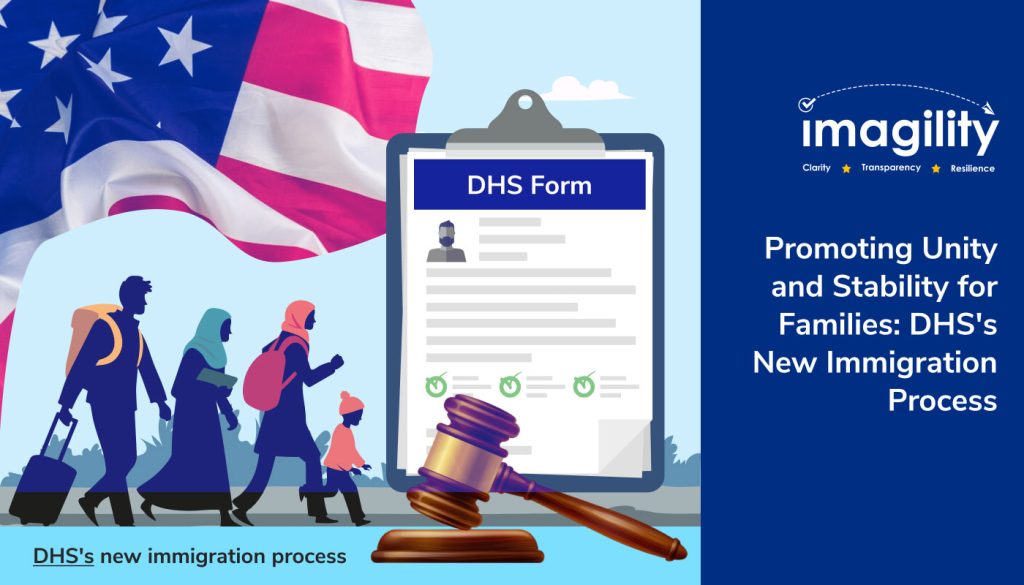On June 18, 2024, the Department of Homeland Security (DHS) announced a big change to help keep families together in the U.S. immigration system. Following President Biden’s plan, DHS introduced a new process to consider parole requests from noncitizen spouses of U.S. citizens on a case-by-case basis. This process is for noncitizen spouses who have been in the U.S. for at least ten years without formal admission or parole. To qualify, they must not have serious criminal records, must not be a threat to national security, and must be eligible to adjust their status.
Key Features of the New Process
Eligibility Criteria
To qualify for parole under this new process, individuals must meet the following requirements:
- Continuous Presence: The individual must have been continuously physically present in the United States for at least ten years as of June 17, 2024.
- Marital Status: The individual must be legally married to a U.S. citizen as of June 17, 2024.
- Security and Safety: The individual must not have any disqualifying criminal history or pose a threat to national security or public safety.
Impact and Scope
DHS estimates that about 500,000 noncitizen spouses of U.S. citizens could qualify for this new process, with an average residency of 23 years in the U.S. Also, around 50,000 noncitizen children of these spouses might be eligible for parole under this process.
Application Process
Eligible individuals will need to file a form with USCIS, including supporting documentation and a fee. Further details on the application process, required fees, and other critical information will be provided in an upcoming Federal Register Notice. USCIS will not accept any applications before the notice’s publication date.
Upon receiving a properly filed parole request, USCIS will evaluate each case based on significant public benefit or urgent humanitarian reasons. This evaluation will include reviewing the individual’s immigration history, criminal record, and results from background checks and security vetting.
New Developments in DHS’s Immigration Process
Start Date for Applications: USCIS will begin accepting applications on August 19, 2024. Applications submitted before this date will be rejected.
Eligibility Criteria: To be considered for a discretionary grant of parole, on a case-by-case basis, under this process, you must:
- Be present in the United States without admission or parole
- Have been continuously present in the United States for at least 10 years as of June 17, 2024
- Have a legally valid marriage to a U.S. citizen as of June 17, 2024
- Not have any disqualifying criminal history or otherwise constitute a threat to national security or public safety; and
- Otherwise, merit a favorable exercise of discretion.
Additional Considerations for Noncitizen Children: Noncitizen children of eligible spouses may also be considered for parole if they were physically present in the United States without admission or parole as of June 17, 2024, and have a qualifying stepchild relationship to a U.S. citizen.
Preparation for Application: Potential applicants should start gathering the necessary documents, including:
- Proof of a legally valid marriage to a U.S. citizen as of June 17, 2024
- Documentation of continuous presence in the United States for at least 10 years
- Proof of identity and spouse’s U.S. citizenship
Frequently Asked Questions and Answers
When Will the Process Start?
USCIS will soon publish a Federal Register Notice detailing the application process and additional guidance. The application process is expected to begin later this summer.
What Happens If I Apply Before the Start Date?
USCIS will reject any filings received before the official start date.
Duration of Parole
Qualifying individuals may be granted parole for up to three years, providing an opportunity to apply for permanent residency during this period.
Preparing Your Application
While waiting for more information, potential applicants can begin collecting proof of their continuous presence in the U.S. and a valid marriage to a U.S. citizen as of June 17, 2024. They should also consider setting up or updating their myUSCIS account.
Biometrics and Fees
Applicants will need to provide biographic and biometric information for vetting. Details on fees and the biometrics process will be included in the forthcoming Federal Register Notice.
Employment Authorization
Once approved for parole, individuals can immediately apply for an Employment Authorization Document (EAD). The time it takes to process EAD applications can vary, and more detailed instructions will be provided later.
Conclusion
This new DHS process is an important step toward keeping families together in the United States. It creates a way for certain noncitizen spouses of U.S. citizens to change their status without leaving the country, helping many families. For more details, look out for the upcoming Federal Register Notice and check the DHS and USCIS websites.
Subscribe to Imagility’s Newsletter and keep track of our blog section to stay updated on the latest news from USCIS and DHS.









